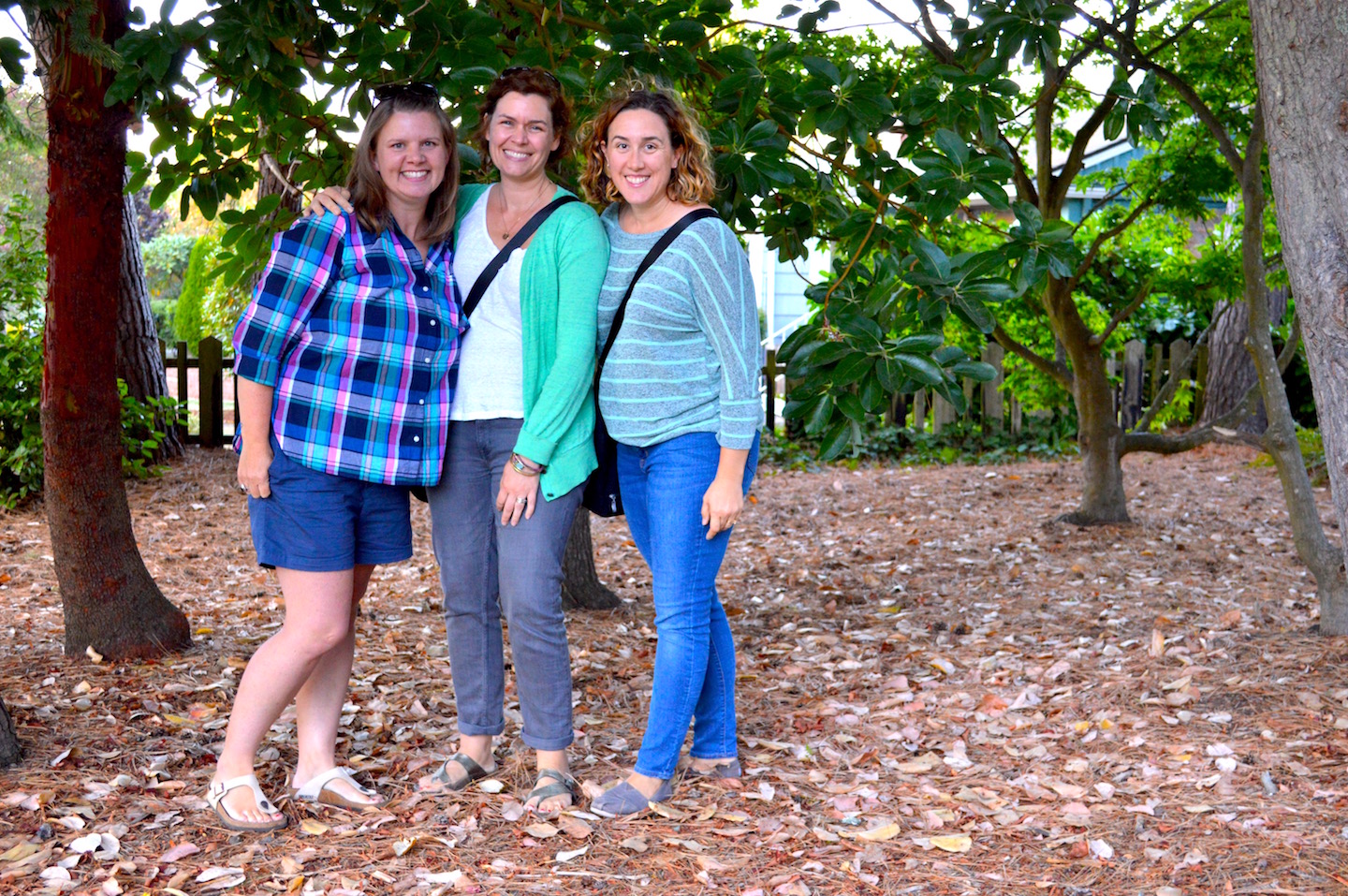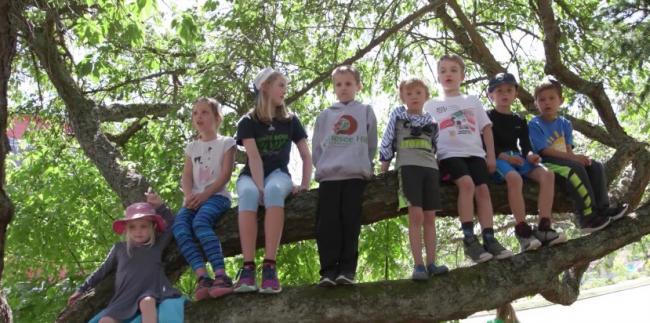In search of a few heroes – time is running out to raise funds for new park
A lot on the corner of 50 Ave SW and SW Dakota St. from being cleared for development and time is running out to convert into a park where kids like these can play.
Mon, 11/20/2017
By Lindsay Peyton
It’s crunch time for the Urban Homestead Foundation.
The nonprofit group was formed in an effort to rescue a lot on the corner of 50 Ave SW and SW Dakota St. from being cleared for development – and to instead transform the property into a center for nature, learning and community.
The organization still needs to raise $300,000 – and only has a little more than a month to do so.
The Urban Homestead Foundation already earned a matching grant – cutting the total down from the original $650,000 -- to buy the decommissioned Seattle City Light substation. The group has raised more than $30,000 from individual donors.
“We don’t have a big donor who has come forward yet, but there’s a lot of momentum,” Katie Stemp said. “A lot of people are coming out, who had just been in the wings watching and waiting.”
Stemp first discovered the 10,000 sq. ft. space about two years ago, when it came up for sale by the City of Seattle. The property houses an urban forest grove, complete with Scots pine, Pacific madrone, Ponderosa pine, Japanese maple and Lebanon cedar – and Stemp wanted to save the trees.
She also wanted to turn the plot into a green space, complete with demonstration gardens, greenhouse, fruit orchard, workshop space, park benches and an outdoor cob oven.
The Seattle City Council agreed to allow an extension of the sale date for a community organization, if the group could raise the funding needed.
Stemp joined forces with Kristen Bedford and Phoebe Ingraham to create a nonprofit to meet the city’s requirements -- the Urban Homestead Foundation – and the city granted them until the end of 2017 to purchase the site.
The founders named the project the “Dakota Homestead Site. “This is a vital piece of property,” Stemp said. “Once it’s gone, you’ll never get it back. We need a space for nature, education and gathering.”
She believes the property could benefit students of all ages in West Seattle – especially the 700 elementary students at Genessee Hill, right across the street.
“This is something teachers could use every single day for science and art,” she said. “That’s the most important thing to consider.”
Jana Claxton is a parent at the nearby elementary school. She said the new facility is missing outdoor learning environments.
"They’ve done a wonderful job with the building, but it’s a lot of cement,” she said. “If they could use this greenspace right across the street, there’d be an opportunity for kids to get out there and put their hands in the dirt.”
Claxton said that children need as many chances as possible to get outdoors and to be lured away from their glowing phone, computer and television screens – and that all West Seattlites will benefit from more parks. “As West Seattle grows, it becomes a little harder to connect to people,” she said. “The Emerald City, and all the trees, I don’t want to see that get lost in all the growth.”
She pictures the lot turning into a place where grandchildren garden alongside their grandparents.That’s a vision she shares with Eileen Putter, who comes to West Seattle from Bellevue twice a week to spend time with her grandchildren.
“West Seattle is getting so built up, and it would be nice to keep this space,” Putter said. “Open space is precious. This would be valuable for generations to come – for people in West Seattle and in general.”
Her granddaughter Samantha Lazar, 11, is in the fifth grade at Genessee Hill. She recently visited the plot of land.
“I thought it was a really amazing space,” Lazar said. “It’s right across from the school and it’s full of trees. It would be really cool if we could keep it here. Everyone could learn how to garden and how to enjoy nature.”

Her mother Rachel Lazar agreed. “The last five years have brought some amazing growth to Seattle,” she said. “We’re all really crowded now – and kind of right on top of each other. These kinds of outdoor opportunities are so few and far between – but we need them now more than ever.”
Nash Cagen, 9, attends fourth grade at Genessee Hill – and is excited about the Urban Homestead Project.
“I don’t think we need anymore big houses,” he said. “I think we should make it a garden. I play outside a lot. I want everyone to learn about vegetables and plants and where their food comes from.”
Erin Munavu lives two blocks away from the lot, has two children at Genesee and teaches at the school. “I get to work with first graders, who aren’t spending as much time out in the dirt as they should,” she said. “They need to know how to plant and how important it is to have trees. That has to be part of their daily lives.”
Munavu said most of the open spaces in the neighborhood are quickly getting filled up with houses. She hopes to save this plot of land from the list.
“It just feels really important,” she said. “It would be so well-used by the neighborhood, by the schools and by the people in the community. It’s a space the kids are using now. But if it’s gone, it’s gone forever.”
Noirin Lynch also lives nearby – and is a big proponent of the project. “For the school to be able to have that property next door as an outdoor learning lab, that’s an opportunity we can’t miss,” she said. “We’re all going to regret it if we let that go.”
Lynch has two children enrolled in Genessee Hill. “All the teachers there want to be able to do more hands-on stuff, but they don’t have the space,” she said. “This is what’s missing from our schools – and that opportunity is right next door.”
Claxton hopes that the community rallies behind the project. “The team is really starting to put the pedal to the metal,” she said. “The passion, the grants, the community outpouring has all be amazing, but they need two or three big donors to come out and bring them across the finish line.”
Stemp said that it will take a village to save this greenspace – and repurpose it as a garden. “We need a handful of people in the community who are willing to make a substantial donation,” she said. “When someone puts a foot forward, other people will follow.”
To learn more about how to become involved in this project or to donate online, visit www.urbanhomesteadfoundation.org.


